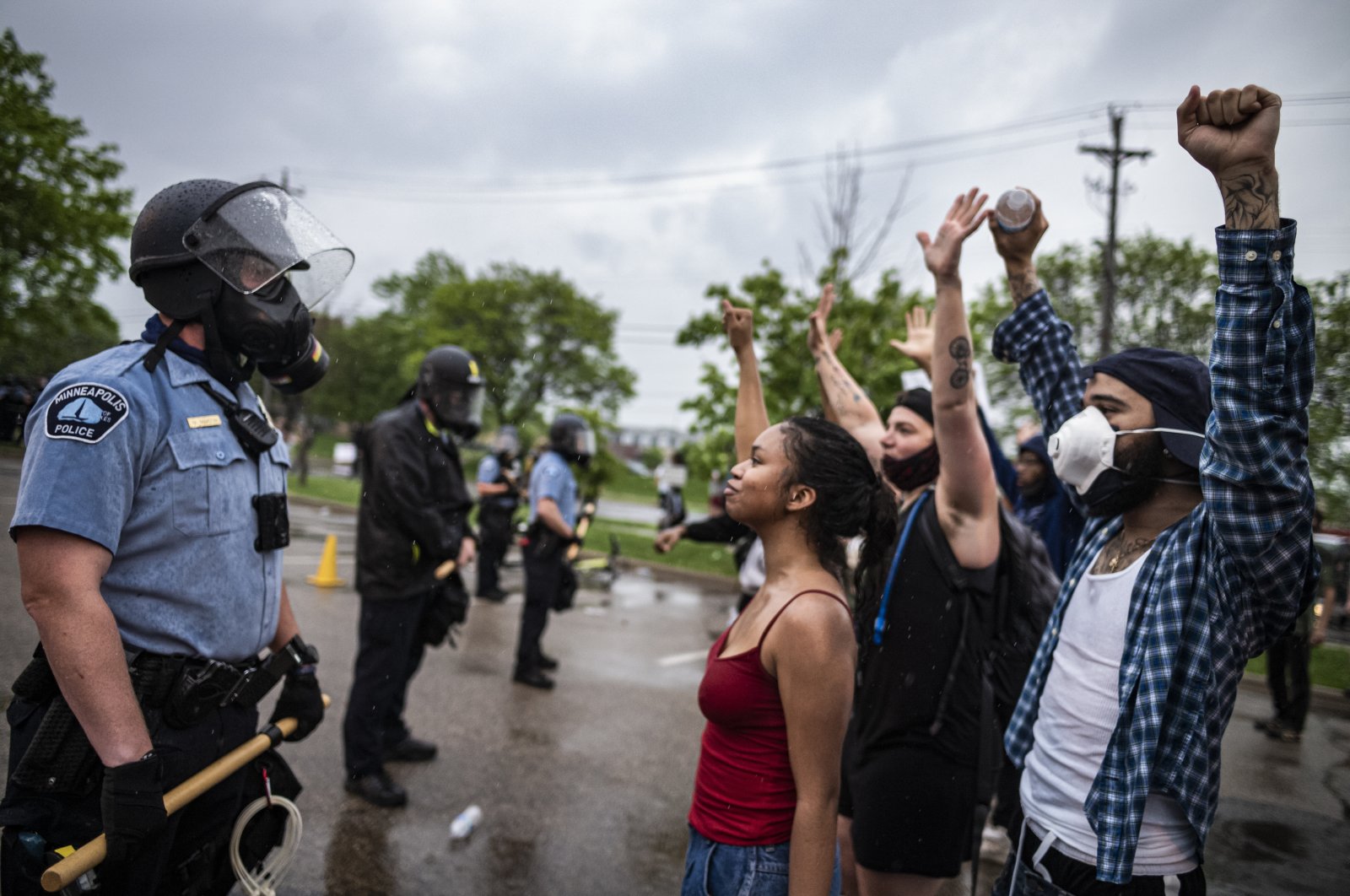
Three years after the tragic murder of George Floyd by police officers in Minnesota, the Black community in the United States continues to grapple with deep-rooted skepticism and mistrust toward law enforcement forces.
"I fear that anyone with a black or brown complexion can become a victim of police brutality," expressed Alicia Jennings, a 39-year-old Houston resident, echoing the sentiments of many. "Simply being in the wrong place at the wrong time could make our skin color become a cause of police brutality."
Jennings, speaking to Anadolu Agency (AA), emphasized that Floyd's murder exposed how police treat black individuals differently from their white counterparts.
"These issues are deeply rooted in racism. It is highly likely that some police officers harbor internalized racism or bias, which contributes to strained relations with the Black community," she said.
With a sense of unpredictability and vulnerability in the presence of law enforcement officials, Jennings believes that the attention drawn to Floyd's killing during the pandemic played a pivotal role.
"With everyone confined to their homes, constantly watching the footage of George Floyd's brutal treatment on television and the internet, people became more aware of the systemic injustice that has persisted for years."
History of Police Brutality
The four officers involved in Floyd's tragic death have all been convicted and sentenced.
Derek Chauvin, the officer who pressed his knee against Floyd's neck for nearly nine minutes, leading to his untimely demise, received a sentence of over 22 years for murder and manslaughter in the state case.
Additionally, he faces a concurrent 21-year federal sentence for violating Floyd's civil rights.
The three other officers – J. Alexander Kueng, Thomas Lane, and Tou Thao – are serving federal sentences ranging from 2.5 to 3.5 years.
Derek Handley, an assistant professor at the University of Wisconsin-Milwaukee, emphasized that Floyd's killing brought the issue of police brutality against black people to the forefront for the younger generation.
However, he noted that this injustice is not new, citing the beating of black motorist Rodney King by Los Angeles police officers in 1991 as a significant event that shed light on the problem.
"Police brutality against black men has occurred for generations, often leading to race riots due to lack of accountability," Handley added.
The wave of social justice protests following Floyd's death has prompted changes in police practices.
"We are witnessing an increase in body cameras, which allow us to ascertain the truth behind events when footage is released," Handley explained. "There is greater accountability within the police force, with violating officers being placed on administrative leave or even losing their positions."
Beyond a few bad apples
To prevent future incidents like Floyd's murder, Handley believes that comprehensive reform of the criminal justice system is necessary.
He cautions against painting all police officers with a broad brush, recognizing that institutional problems exist rather than the issue being limited to a few "bad apples."
"The long history of perceiving black people as criminals has permeated society, resulting in law enforcement treating them accordingly," Handley pointed out.
This bias persists regardless of the race of the officers involved, as exemplified by the case of Asian and black officers and Thao and Kueng's involvement in Floyd's killing.
Handley also highlighted the case of five black Memphis police officers who fatally beat black motorist Tyre Nichols earlier this year, reinforcing the institutional conditioning of how police view black individuals.
The experience of being a black person in America necessitates mental preparation when encountering law enforcement agencies, according to Handley.
"Every black person feels a little nervous when approached by a cop or during a traffic stop. My tactic is to put the police officer at ease because survival is the priority. I roll down all my windows, place my hands on the steering wheel, and avoid sudden movements. I respond respectfully with 'yes sir' and 'no sir' and inform them of my actions to eliminate any perceived threat," he explained.
While societal stereotypes may not change overnight, Handley believes a bipartisan effort to reform the criminal justice system is essential.
"Society must commit to fixing the problem. It's a political argument regarding how we allocate funds and provide training for the police," he stated.
Despite her skepticism, Jennings remains hopeful that change is possible. "We should treat everyone with respect, recognizing our shared human values. We all bleed the same and are destined for mortality. Skin color should never be a basis for differentiation," she asserted.
